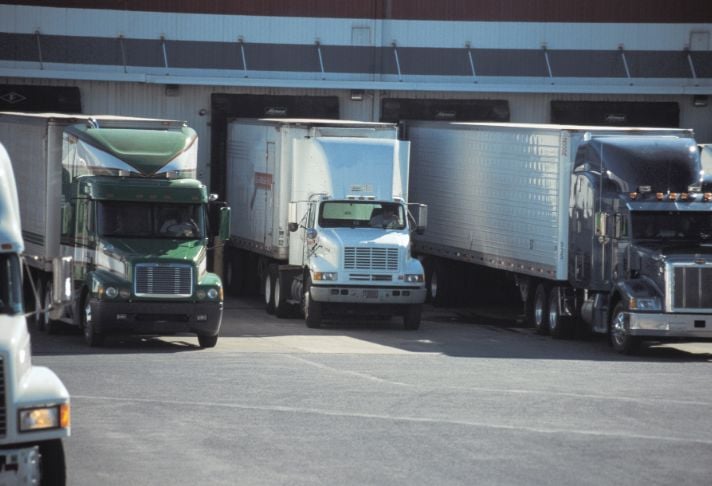Cargo Insurance
Contingent Cargo Insurance for Freight Brokers - How it Works
Contingent cargo insurance, or contingent cargo liability insurance, is an insurance product used by freight brokers. It covers claims of a complex nature, ensuring cargo is protected even if a general insurance claim fails or is denied. A standard cargo insurance product protects the shipper if cargo is lost or damaged. If a carrier can't or won't pay, contingent cargo insurance steps in to protect the shipper.
The process of obtaining a contingent cargo insurance plan starts with the shipper. The supplier of the product or shipment often outsources their deliveries to a third-party carrier. This carrier might use boats, air transport, or trucks to move the shipment. A freight broker works with both the shipper and the carrier to facilitate a contingent cargo insurance claim.
Who Needs Contingent Cargo Insurance?
Many individuals involved in shipping require contingent cargo insurance, including:
- Freight broker: The broker isn't legally obligated to have contingent cargo insurance, but most brokers do have legal liability. It enhances clients' faith that the broker is covered, even if a carrier refuses to pay.
- Shippers and manufacturers: The shipper requires contingent cargo insurance because they are the entity that has a monetary interest in the shipment. If a product is lost or damaged and the carrier refuses to pay, contingent cargo insurance provides coverage.
- Logistics and transport companies: The company transporting the goods should invest in contingent cargo insurance to protect themselves. If cargo is damaged or lost, this insurance policy helps protect the transport company from liability costs.
Contingent cargo insurance is a smart investment for all parties involved in cargo manufacturing, delivery, and brokerage.

When Does Someone Need Contingent Cargo Coverage?
Contingent cargo insurance is required when general cargo insurance doesn't cover the cargo loss or damage. There are many reasons this might happen. Some of the most common reasons to invest in contingent cargo coverage include:
- Carrier Liability Limits: A carrier liability limit is the amount a carrier can be held liable for the loss or damage to a shipment. For example, a general cargo insurance plan might cover a carrier up to $1 million in merchandise. If the loss or damage of goods is more than $1 million, the contingent cargo insurance kicks in.
- Coverage Gaps in Transit: A liability coverage gap is a missing element in a general cargo liability insurance policy, leaving a courier vulnerable to certain forms of liability. For example, a general policy might cover theft but not flood. If cargo is damaged by water in a flood, this gap in the cargo policy leaves the courier unprotected.
- Cargo of High Value or Sensitivity: Not all cargo is equal. When transporting valuable, sensitive, or rare cargo, the contingent cargo coverage adds an extra layer of protection.
Anytime your general cargo insurance might not cover the transportation of goods, a contingent cargo insurance policy should be used.
What Does Contingent Cargo Insurance Cover?
Contingent cargo insurance covers a wide range of risks. In many cases, it is customizable to the needs of the shipper, carrier, or freight broker. Some of the ways it protects include:
In-Transit Cargo Protection
Here are two examples of what contingent cargo insurance protects during transit:
1. A subcontracted carrier:
A freight broker contracts a carrier to deliver $500,000 worth of merchandise. The broker doesn't realize the carrier has subcontracted a smaller trucking company to make the delivery in order to save money. The truck has an auto accident, and merchandise is badly damaged. The freight broker reaches out to the carrier company for compensation. The carrier company tries to process a cargo claim through the third-party trucking firm, but the claim is denied because the policy has lapsed. The freight broker's contingent cargo insurance will cover the losses, protecting them from the financial burden of the damaged merchandise.
2. Policy exclusion problems:
A shipper hires a broker to manage the delivery of medical equipment. The broker hires a carrier to make the delivery happen. Unfortunately, the refrigeration equipment used by the carrier malfunctions, and the temperature-sensitive medical equipment is damaged. If the carrier's policy has a specific exclusion for losses related to technical malfunctions, the shipper is out of money, and the broker is to blame. The broker's contingent cargo insurance acts as a safety net, protecting all parties.
Modes of Shipping Covered
Shipping covered by a contingent cargo insurance policy includes:
- Land Transportation: Anything transported by truck, cargo van, car, train, or other land device.
- Sea Freight: Any cargo transported by cargo ship, ferry, or other watercraft.
- Air Cargo: Any merchandise transported by airplane or helicopter.
It's important to check a policy before shipping to ensure preferred shipping methods are included.
Exclusions and Limitations
As with any insurance policy, there are some exclusions and limitations, even for a contingency policy. Some of the exclusions include:
- Acts of War and Terrorism
- Intentional Damage or Misconduct
- Delay-Related Losses
In these events, there is likely no way to recoup losses unless an additional clause has been added to your policy.

Securing Cargo with Contingent Cargo Insurance
In conclusion, it's extremely important for freight brokers to invest in contingent cargo insurance to protect what general cargo insurance doesn't. Shippers and carriers can also benefit from contingent cargo insurance, even if the broker has it.
Finding the right coverage is important. No two businesses are alike, and the way a company ships, where it ships to, how the cargo is transported, and potential risks along the way all play a role in the type of coverage needed. A wholesale insurance company is best suited to find unique niche products to cover all risks.
Placing Contingent Cargo Insurance With Novatae
Novatae is a wholesale insurance company specializing in coverage of unique, hard-to-cover risks. Novatae works with brokers, shippers, and carriers, ensuring contingent cargo coverage protects where general liability insurance doesn't.
Working with a Novatae insurance agent, businesses and providers can craft their ideal insurance coverage based on identifiable risks in their business models.
This article is not intended to be exhaustive, nor should any discussion or opinions be construed as legal advice. Readers should contact legal counsel or an insurance professional for appropriate advice.
About the Author

Insights
- What is an Umbrella Insurance Policy?
- What is Animal Mortality Insurance?
- MFA: The Cyber Version of a "Highly Protected Risk"
- Convenience Store Insurance Programs: What You Need to Know
- Home Health Liability Insurance: What You Should Know
- Commercial Builders' Insurance: Comprehensive Protection for Construction Professionals
- Understanding the Role of Additional Insureds in Commercial Insurance
- Convenience Store & Gas Station Insurance Coverage Explained
- The Convergence of Cybersecurity and Cyber Insurance
- It’s Easy to Become a Criminal Hacker!
- Medical Spa Insurance: What Insurance Retailers Need to Know
- Contractors Professional Liability Insurance
- Action Over Coverage and Exclusions



.png)
.png)